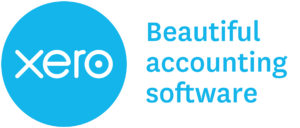 When you hear of companies ‘interviewing for cultural fit’, that often means that recruiters are looking for someone with a specific set of attitudes, assumptions and biases that they think will fit neatly into the existing cultural framework of the company. This can be problematic because it can damage efforts to increase diversity, resulting in a workforce that may look diverse but is actually made up of people who all think the same way. Says the Harvard Business Review:
When you hear of companies ‘interviewing for cultural fit’, that often means that recruiters are looking for someone with a specific set of attitudes, assumptions and biases that they think will fit neatly into the existing cultural framework of the company. This can be problematic because it can damage efforts to increase diversity, resulting in a workforce that may look diverse but is actually made up of people who all think the same way. Says the Harvard Business Review:
“We might be creating a situation in which companies will be very diverse in appearance, but intrinsically homogenous. They will be hiring the same profile of people even though they might have very different backgrounds. Thus the company will appear diverse — but we know that appearances can be deceiving.”
That doesn’t mean that culture isn’t important, but from the candidate’s point of view, not the employer. The important cultural question is, does this company’s culture fit with my personal values?
If, as a woman in STEM, you rate a company’s ethics and culture highly, you are not alone. The Futuretrack study by the Higher Education Careers Services Unit found that “socially useful work” ranked higher than “competitive salary” in qualities graduates were looking for in jobs. And women were more likely than men to say that “the opportunity to perform socially useful work or work for an ethical organisation” was important.
Interviews are a two-way street
Interviews are always a two-way street: You are evaluating your future employer just as much as they are evaluating you.
“I’d recommend thinking about the characteristics of a business culture where you’d be happy and successful,” suggests Caroline Plumb, founder of Fluidly. “What type of place gets the best out of you and why. Then think about what you can bring to that sort of business, how you’d be able contribute and how you’d shape it. Demonstrate what you can bring and add, rather than how you ‘fit’.”
As you’re searching for jobs to apply for, take a look at the company’s background try to find out what kind of culture they have.
“Do a little research before the interview to find out what to expect from the company’s workplace culture, and check that your values are aligned,” says Inga Rudzitis, Operations Manager from Float. “I’d always encourage people to be open and honest in an interview, so it’s not really different for questions about cultural fit. If the company’s values fit with your own then you can just answer from the heart, which always come across better than an overly rehearsed answer that could be completely fabricated. I know that can be really difficult advice to hear when you’re job-hunting as it can feel like there’s a lot of pressure to “get it right”, but the thing about culture is that there isn’t a right and a wrong type. Some people just prefer different types of working culture, so questions about culture aren’t about determining your skill or your value.”
Faye Whitlock, head of talent at GoCardless, an online payments provider, suggests that candidates “can often get a great insight into a company’s culture through its website, LinkedIn and other social media channels.”
Ask about culture in your interview
If it’s not clear what kind of culture a company has, or if you’re not sure about whether you’d like to work there, don’t be afraid to bring it up in the interview.
“You can always ask your interviewer or recruiter for guidance on these too if it isn’t apparent,” says Whitlock. “We like to be asked why we enjoy working at GoCardless, or what are opportunities there are for career progression. A good question is “What’s a typical day in the life like…” We try to have people with different departments, tenure and seniority [in an interview], so people can ask about different cultural aspects of the company.”
Rudzitis explains, “We try to be quite upfront about what our culture is like so that applicants have a good idea of what to expect. For example, in our job ads for engineering roles we bring attention to the fact that our engineering team works closely with our marketing team because in lots of companies these departments are really separated from each other, in terms of physical distance as well communications, decision-making, and working practices. We also like to show interviewees our office and introduce them to a few members of the team, so we don’t get a huge number of questions about our culture as applicants can see what it’s like for themselves.
“When we last hired for a part-time role we got quite a few questions about that: how many others worked part-time and how that would impact the way they worked with others. We’ve also been asked before why we like working at Float and what would be challenging in a particular role. It’s great to hear questions like this because it also tells us something about what the applicant is looking for in work culture, and we can improve our future job adverts to make sure we’re really getting across why we think Float is a great place to work.”
Culture is important, but as a metric for you as a potential employee to decide whether you will be happy working for a particular company.
 The Finding Ada Online Careers Fair for Women in STEM was sponsored by Xero, a beautiful, easy-to-use online accounting software for small businesses and their advisors. It has over one million subscribers in more than 180 countries, with more than 250,000 of those in the UK.
The Finding Ada Online Careers Fair for Women in STEM was sponsored by Xero, a beautiful, easy-to-use online accounting software for small businesses and their advisors. It has over one million subscribers in more than 180 countries, with more than 250,000 of those in the UK.